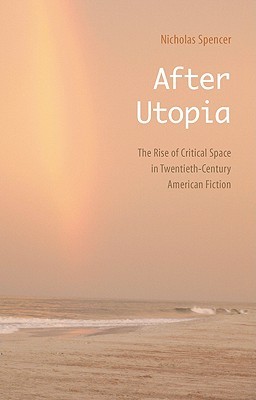
- We will send in 10–14 business days.
- Author: Nicholas Spencer
- Publisher: University of Nebraska Press
- ISBN-10: 0803243014
- ISBN-13: 9780803243019
- Format: 16 x 23.6 x 2.5 cm, kieti viršeliai
- Language: English
- SAVE -10% with code: EXTRA
Reviews
Description
By developing the concept of critical space, After Utopia presents a new genealogy of twentieth-century American fiction. Nicholas Spencer argues that the radical American fiction of Jack London, Upton Sinclair, John Dos Passos, and Josephine Herbst reimagines the spatial concerns of late nineteenth-century utopian American texts. Instead of fully imagined utopian societies, such fiction depicts localized utopian spaces that provide essential support for the models of history on which these authors focus. In the midcentury novels of Mary McCarthy and Paul Goodman and the late twentieth-century fiction of Thomas Pynchon, William Gaddis, Joan Didion, and Don DeLillo, narratives of social space become decreasingly utopian and increasingly critical. The highly varied "critical space" of such texts attains a position similar to that enjoyed by representations of historical transformation in early twentieth-century radical American fiction. After Utopia finds that central aspects of postmodern American novels derive from the overtly political narratives of London, Sinclair, Dos Passos, and Herbst.
Spencer focuses on distinct moments in the rise of critical space during the past century and relates them to the writing of Georg Lukács, Ernst Bloch, Antonio Gramsci, Hannah Arendt, Henri Lefebvre, Gilles Deleuze and Félix Guattari, and Paul Virilio. The systematic and genealogical encounter between critical theory and American fiction reveals close parallels between and original analyses of these two areas of twentieth-century cultural discourse.
Nicholas Spencer is an associate professor of English at the University of Nebraska-Lincoln, where he specializes in twentieth-century American literature and critical theory.
EXTRA 10 % discount with code: EXTRA
The promotion ends in 23d.05:10:11
The discount code is valid when purchasing from 10 €. Discounts do not stack.
- Author: Nicholas Spencer
- Publisher: University of Nebraska Press
- ISBN-10: 0803243014
- ISBN-13: 9780803243019
- Format: 16 x 23.6 x 2.5 cm, kieti viršeliai
- Language: English English
By developing the concept of critical space, After Utopia presents a new genealogy of twentieth-century American fiction. Nicholas Spencer argues that the radical American fiction of Jack London, Upton Sinclair, John Dos Passos, and Josephine Herbst reimagines the spatial concerns of late nineteenth-century utopian American texts. Instead of fully imagined utopian societies, such fiction depicts localized utopian spaces that provide essential support for the models of history on which these authors focus. In the midcentury novels of Mary McCarthy and Paul Goodman and the late twentieth-century fiction of Thomas Pynchon, William Gaddis, Joan Didion, and Don DeLillo, narratives of social space become decreasingly utopian and increasingly critical. The highly varied "critical space" of such texts attains a position similar to that enjoyed by representations of historical transformation in early twentieth-century radical American fiction. After Utopia finds that central aspects of postmodern American novels derive from the overtly political narratives of London, Sinclair, Dos Passos, and Herbst.
Spencer focuses on distinct moments in the rise of critical space during the past century and relates them to the writing of Georg Lukács, Ernst Bloch, Antonio Gramsci, Hannah Arendt, Henri Lefebvre, Gilles Deleuze and Félix Guattari, and Paul Virilio. The systematic and genealogical encounter between critical theory and American fiction reveals close parallels between and original analyses of these two areas of twentieth-century cultural discourse.
Nicholas Spencer is an associate professor of English at the University of Nebraska-Lincoln, where he specializes in twentieth-century American literature and critical theory.


Reviews